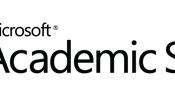research success
name : ali almuohannadi
student booklet
introduction
Research doesn't have to be hard! Avoid the Google time trap and become a pro at searching scholarly sources. Today, you'll learn the skills necessary to find everything you need for your research project. You'll learn why library databases are a better bet than Google. We'll cover the steps of the research process and how to formulate a keyword search that will turn you into a research champ.
what you'll learn
Following this lesson, you'll be able to:
Give two examples of why a scholarly database is a better choice for university research than Google.
Put the steps of the research process in order.
Demonstrate keyword brainstorming by splitting a search topic into major concepts and generating at least two related keywords for each concept.
Locate a scholarly article in the database Academic Search Premier and provide its MLA citation.
contents
Google vs. Library Databases - Page 2
Steps of the Research Process - Page 3
Keyword Brainstorming - Page 4
Searching in Academic Search Premier - Page 6
More Useful Information - Page 8
Google vs. Library Databases
How do you start your research? If you're like a lot of students, you start with Google. There's nothing wrong with that! But if you don't venture beyond Google (and Wikipedia), you're likely to waste a lot of time trying to find appropriate resources for your school assignments.
Think about the reasons that your instructors encourage you to use library databases. Why might a library database be a better choice for scholarly research than a search engine like Google?
Take part in the class discussion.
Activity
Write two reasons that library databases are better choices than Google:
1. the library databases have more reliable and accurate information than Google does. |
2. in the library databases you can find a giant amount of reliable sources about a |
Specific type of information otherwise google might give you a wrong information. |
Tips for Success
It's OK to use Google and Wikipedia to get started on your background research, but be sure to move on to scholarly resources.
Keep notes on the research you do. It's important to cite all of your sources.
All library resources and services are included in your tuition. The ASU Libraries and library staff are there to help you get the information you need.
Steps of the Research Process
Research is a process. It starts when your instructor assigns you a research project and ends when you turn in your final project. You might feel like research takes forever. But the more familiar you are with your topic, the faster and easier your project will be to complete.
And your research will go much more smoothly if you keep the steps of the research process in mind! The first step is to choose/refine your topic before you begin to look for sources. This might sound obvious, but if you aren't sure what you want to write about, you'll end up wasting time looking for useful sources.
Second, brainstorm keywords for your topic. Some Americans say "soda," some Americans say "pop." Many Southerners use the word "coke" to refer to any soft drink. Academic research is the same way - you'll find different words used for the same idea. The more synonyms and related words you have for your topic, the better sources you'll find.
Third, choose/search a database . Helpful ASU librarians have created a Library Guide to the best research databases for your class, search for yours at libguides.asu.edu (e.g. Eng 101, Eng 102). Today, we'll use the scholarly database Academic Search Premier.
Fourth, evaluate your results/resources and repeat the process as necessary. At this point in the research process, you've hopefully found some useful articles. But are they on-topic? Are they appropriate for your project? Do you have enough? This is where the "re" comes into "research." If your sources are lacking, or your topic has shifted, start the research cycle again! If you're not sure, ask a librarian!
Activity
Write the four steps of the research process:
1. choose and refine the topic |
2.brainstorming and knowing keywords |
3. choose a database |
4. evaluate the results and the resorces |
Tips for Success
Get 24/7 help with any part of the research process through live chat or email from the Ask A Librarian service at lib.asu.edu/help!
Academic Search Premier is a great multi-disciplinary database that contains newspapers, magazines, and scholarly articles. We'll use it in class today. You can find it on lib.asu.edu at the bottom of the page, under Frequently Used Resources.
Keyword Brainstorming
Does drinking affect college students' grades?
If you search for this question in Google, you get about 32 million results. But if you search for this question in the scholarly database Academic Search Premier, you get zero.
That's not because Academic Search Premier doesn't have any articles on the subject! Google is designed to give you results for any topic you throw at it because Google makes money by giving results and getting you to click on links. Academic Search Premier, on the other hand, is a paid resource designed to give you very precise results that are related to your keyword search. In turn, you have to be precise in the words you search for.
To get the best results in Academic Search Premier, break down your search topic first into key concepts. Then, brainstorm synonyms and related keywords for each concept to ensure you find all available and relevant information.
Use the word "OR" between related keywords when searching in Academic Search Premier. The database won't understand what you're searching for if you put all keyword synonyms into one box without it.
Example: Searching for "soda OR pop OR coke" will retrieve articles that use any of these terms. So, if you're searching for articles on soft drinks, you can make sure you get everything that's relevant, even if the article uses a different word for soft drinks than you do!
Easy, right? Try it yourself on the next page.
Tips for Success
Use the word "OR" between related keywords when searching in Academic Search Premier.
Remember: "OR is MORE." You get more results using "OR."
Use the word "AND" between concepts. "AND is LESS."
Key concepts: 1- fast food 2- health risks 3- children â¦.. 1 fast food or unhealthy food or full of fat food 2 health risks or diseases or illness 3 children or young or boys and girls
As mentioned previously, Academic Search Premier doesn't search like Google does! And instead of one search box, there are three. The database search page defaults to "advanced search" for good reason. Advanced Search makes it easy to search for your brainstormed keywords.
Activity
Navigate to Academic Search Premier:
Go to the library's home page at www. l ib.asu.edu
Scroll to the bottom to Frequently Used Resources
Click on Academic Search Premier. (You can also find it in the Eng 101 or 102 or your class' Library Guide).
Use the following page to help you answer these questions:
Search Academic Search Premier with the keywords as shown on the next page, Page 7. How many results did you receive? Write the number here: ___15___.
Filter your results to just include Scholarly (Peer Reviewed) Journals. How many articles do you have now? Write the number here: ___15___.
Choose one of the articles. In the Cite feature, find the MLA Citation. In MLA format, write just the author(s) and article title here:
Garnier-Dykstra, Laura M., et al. "Nonmedical Use Of Prescription Stimulants During College: Four-Year Trends In Exposure Opportunity, Use, Motives, And Sources." Journal Of American College Health 60.3 (2012): 226-234. Academic Search Premier. Web. 7 Oct. 2014.
Tips for Success
During the research process, keep notes on what keywords you've searched for and which resources you've used. You'll avoid repeating searches you've already done.
With notes, you're also less likely to accidentally plagiarize because you'll be able to find and cite all of your sources.
Sometimes you might not find many results because you might have too broad or too narrow a topic. Revise your topic, try another database, or Ask A Librarian for help.
Activity: Searching in Academic Search Premier
Search topic: Does drinking relate to college students' grades?
More Useful Information
Check out the Library Guide for your class!
Helpful ASU librarians have created a Library Guide to the best resources for your class: libguides.asu.edu. Type your class name into the search box to find your guide: e.g. Eng 101, Eng 102.
Library Guides have tips on choosing a topic, several great databases useful for your research projects, and help with evaluating and citing sources.
Get 24/7 help with your research!
Chat live 24/7, email, call, or stop in to get help from a friendly librarian! The Ask A Librarian service is available at lib.asu.edu/help!
All library databases and the book catalog are available online anytime!
Just navigate to lib.asu.edu and log in with your ASURITE if you're prompted.
This work is licensed under the Creative Commons Attribution-NonCommercial-ShareAlike 4.0 International License. To view a copy of this license, visit http://creativecommons.org/licenses/by-nc-sa/4.0/deed.en_US.
Rev. 1/10/14 | é 2014 J. Lindsay O'Neill | www.jlindsayoneill.com


